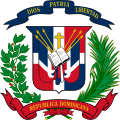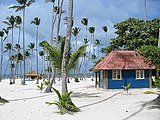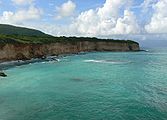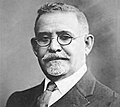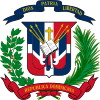Introduction
The Dominican Republic is a country on the island of Hispaniola in the Greater Antilles archipelago of the Caribbean Sea, bordered by the Atlantic Ocean to the north. It occupies the eastern five-eighths of the island, which it shares with Haiti, making Hispaniola one of only two Caribbean islands, along with Saint Martin, that is shared by two sovereign states. It is the second-largest nation in the Antilles by area (after Cuba) at 48,671 square kilometers (18,792 sq mi), and second-largest by population, with approximately 11.4 million people in 2024, of whom approximately 3.6 million live in the metropolitan area of Santo Domingo, the capital city. The Dominican people declared independence from Spain in November 1821. The colony of Santo Domingo was regionally divided with many rival and competing provincial leaders during the 1800s. Dominicans were often at war fighting against the French, Haitians, Spanish, or amongst themselves, resulting in a society heavily influenced by military strongmen. Santo Domingo attained independence as the Dominican Republic in 1844 when Dominican nationalists led an insurrection against the Haitians. Over the next decades, the Dominican Republic experienced several civil wars, battles against Haiti, and a brief return to Spanish colonial status, before permanently ousting the Spanish during the Dominican War of Restoration of 1863–1865. The U.S. occupied the Dominican Republic (1916–1924) due to threats of defaulting on foreign debts; a subsequent calm and prosperous six-year period under Horacio Vásquez followed. From 1930 the dictatorship of Rafael Leónidas Trujillo ruled until his assassination in 1961. Juan Bosch was elected president in 1962 but was deposed in a military coup in 1963. A civil war in 1965, the country's last, was ended by U.S. military intervention and was followed by the authoritarian rule of Joaquín Balaguer (1966–1978 and 1986–1996). Since 1978, the Dominican Republic has moved toward representative democracy. The Dominican Republic has the largest economy (according to the U.S. State Department and the World Bank) in the Caribbean and Central American region and is the seventh-largest economy in Latin America. Over the last 25 years, the Dominican Republic has had the fastest-growing economy in the Western Hemisphere – with an average real GDP growth rate of 5.3% between 1992 and 2018. GDP growth in 2014 and 2015 reached 7.3 and 7.0%, respectively, the highest in the Western Hemisphere. Recent growth has been driven by construction, manufacturing, tourism, and mining. The country is the site of the third largest (in terms of production) gold mine in the world, the Pueblo Viejo mine. (Full article...) Selected article -Cerveceria Nacional Dominicana (CND), is the primary beer producer in the Dominican Republic, the company is owned by AmBev and Grupo León Jimenes. It was founded in 1929 by the American entrepreneur Charles H. Wanzer. It was the first brewery in the Dominican Republic and the largest in the Antilles and Central America with sales of 3.8 million hectoliters. It first released its major brand Presidente in 1935, and has since expanded to other brands such as Bohemia Especial, Presidente Light and Ambar. The first two are pilsener beers that fall in the category of lager beers, and the latter is the company's first incursion into dark beer. Its current brewery complex was opened in 1951. It employs 2,500 people and produces up to 500 million liters of beer. The CND's facilities have been certified ISO 9001/2000 and 14001/2004. (Full article...)General images -The following are images from various Dominican Republic-related articles on Wikipedia.
Selected picture -Coral reef and school of yellow jack fish at Aquarium Reef, Catalina Island
Selected biography -Dominicans (Spanish: Dominicanos) are an ethno-national people, a people of shared ancestry and culture, who have ancestral roots in the Dominican Republic. The Dominican ethnic group was born out of a fusion of European (mainly Spanish), native Taino, and African elements, which is an ethnic fusion that goes back to the 16th century. Due to this fusion, the majority of Dominicans are of mixed-race heritage, tracing roots mainly to these three sources with the vast majority being of predominant European ancestry. The demonym Dominican can be traced as far back as the 1621. The name came from Santo Domingo, which was not only the name of the capital city but also of the entire island at the time, Spain used this term to refer to the inhabitants of Spanish colony of Santo Domingo. Recent immigrants and their children, who are legal citizens of the Dominican Republic, can be considered "Dominican" by nationality but not ethnicity due to not having ancestral roots in the country. "Dominican" was historically the name for the inhabitants of the Captaincy General of Santo Domingo, the site of the first Spanish settlement in the Western Hemisphere. The majority of Dominicans primarily trace their origin to the Captaincy General's European settlers, with native Taino and African influences. (Full article...)Related portalsWikiProjects
Things to do
Associated WikimediaThe following Wikimedia Foundation sister projects provide more on this subject:
SourcesDiscover Wikipedia using portals | |||||||||||||||||||||||||
